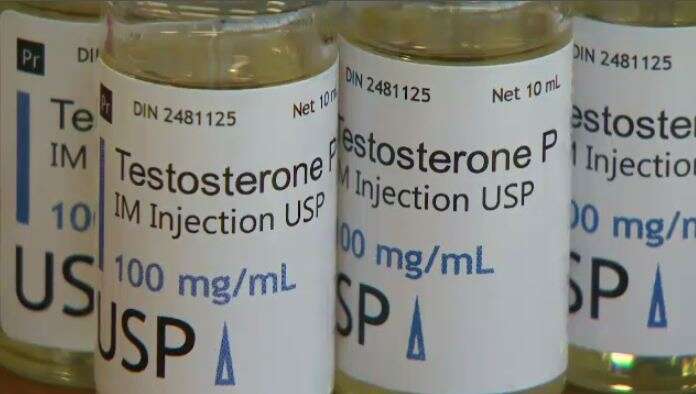The National Health Service in England reports that its prescriptions for testosterone for women have risen 10-fold, with surges in demand appearing to be fuelled by the “Davina effect”.
In recent years, a number of celebrities, including Davina McCall, have spoken of the potential benefits of testosterone, as part of documentaries about the menopause.
Medical guidance for doctors advises that testosterone can be prescribed to menopausal women with low libido.
However, there are currently no licensed preparations for women, with limited data on safety and effectiveness, meaning that drugs for men have to be prescribed “off-label”.
New data obtained by The Pharmaceutical Journal show 4,675 women aged 50 and over being prescribed the drug last November, up from 429 in Nov 2015.
The number of women aged 49 and below went up from 228 to 2,913 over the same period.
The figures show particular spikes in demand after McCall made two documentaries about the menopause, with a tripling in NHS prescriptions since the broadcast of Sex, Myths and the Menopause, and a 52 per cent spike in the month after a follow-up which discussed the benefits of testosterone.
The TV presenter went on to film her daily menopause routine on Instagram, including the cream.
Testosterone benefits have been overstated -Experts
However, menopause experts raised concerns that some of the benefits of testosterone have been overstated.
Dr Paula Briggs, the chairman of the British Menopause Society, said: “Women are being led to believe that it’s the missing piece of the jigsaw, that it’s going to be the solution to their relationship problems, and I think we have to be much more scientific about how that information is provided for women.
“It’s coming from celebrities and politicians, and that’s not necessarily appropriate.”
“We don’t have the evidence to say that it improves any of the other symptoms that women I think sometimes are requesting treatment for,” Dr Briggs added, citing examples such as cognition, mood, energy and musculoskeletal health.
Guidelines from the National Institute of Health and Care Excellence published in 2015 said that doctors should “consider testosterone supplementation for menopausal women with low sexual desire if HRT alone is not effective”.
However, the document also stated that the hormone may also help maintain bone and muscle health. The NHS website said that the gels or creams “can help improve sex drive, mood and energy levels”.
New drugs on the horizon
While testosterone is associated with men, it is produced by women in the ovaries and the adrenal glands. It helps the body to produce dopamine, which can increase libido and sexual function.
On its website, the British Menopause Society said: “Regarding the role of testosterone, the current indication is for persistent low sexual desire after other contributory factors have been addressed.
“There is not enough evidence available to support it being prescribed for improving cognitive function, musculoskeletal health or improving bone density.”
There are currently no licensed testosterone preparations for women in the UK, so NHS clinicians prescribe products licensed for men “off-label” estimating the appropriate female dose.
One treatment, called AndroFeme cream made by Lawley Pharma, was licensed for female use in Australia in 2020 and is currently imported to the UK for private use under a special Medicines and Healthcare Products Regulatory Agency license.
Michael Buckley, the chief executive of Lawley Pharma, said he is preparing to submit a marketing authorisation application for AndroFeme to British regulators “in the near future”.


